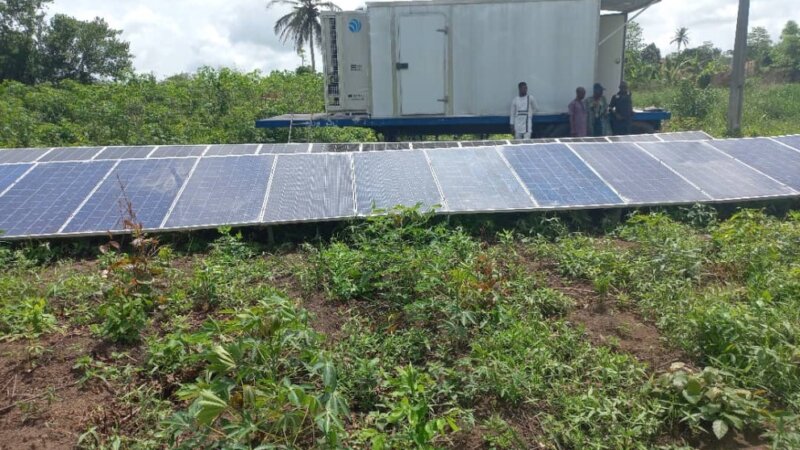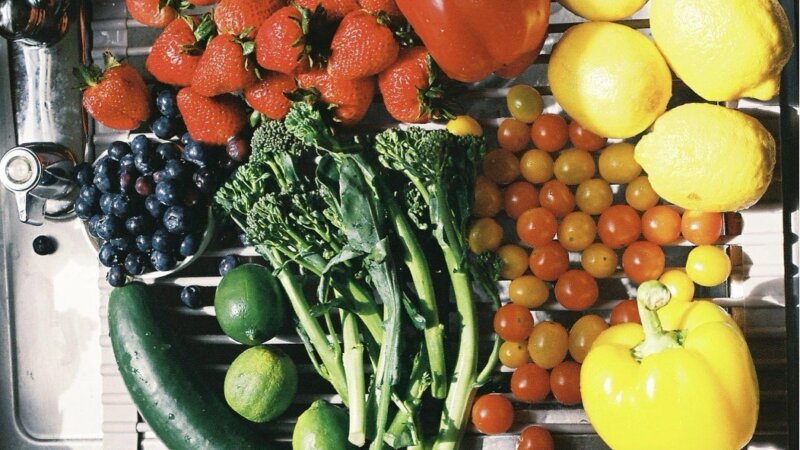Is Your Faith on the Menu? What do religions and food systems have in common?

A healthy ecosystem leads to a healthy food system. But transformation must begin within: with a shift in mindset that recognizes our interconnectedness with all things | Picture: AI generated.
Fatuma Abdi is Gender Inclusion & Advocacy Officer at CARE International in Kenya. She is the gender lead for the Resilient Arid land Partnership for Integrated Development Program (RAPID+). Participant of the 2025 food systems e-course, Fatuma - in this blog - brings a unique perspective to food systems transformation – a religious lens.
“We are not human beings having a spiritual experience; we are spiritual beings having a human experience.” These famous words by Pierre Teilhard de Chardin have been echoing in my mind lately.
I know religion can be a sensitive topic. But please hear me out, as it links to food systems.
Lately, I’ve been experiencing a kind of spiritual awakening, especially in relation to the connection between nature and faith. I find great peace in sky gazing and being alone with nature. It helps me reflect and connect with the world in all its glory. A few weeks ago, it dawned on me that we often overlook the deep role religion plays in our daily lives.
Let’s stick with connection, nature, and food habits for a moment. What is our connection with nature? How does God want us to interact with nature or with His creation? Are there principles guiding how we engage with the natural world?
Let’s find out, shall we?
In Islam, for instance, we are reminded not to waste water – even when we’re by a flowing stream. The Qur’an emphasizes avoiding overconsumption and treating animals ethically: “Eat and drink, but do not be excessive. Indeed, He likes not those who commit excess.” (Qur’an 7:31). Fasting, one of the five pillars of Islam, offers not only spiritual and health benefits but also potential environmental advantages.
In Christianity, God places man in the Garden of Eden “to work it and take care of it” (Genesis 2:15). There are also strong teachings about food, especially the importance of avoiding waste, as seen when Jesus instructs the disciples to gather the leftovers after feeding the multitudes (John 6:12), so nothing is wasted.
In Hinduism, nature is sacred. Animals are not just companions; they’re revered. Many Hindus practice a vegetarian lifestyle grounded in the principle of non-violence – respecting all life.
Buddhism teaches deep mindfulness, especially regarding consumption. Wastefulness and harming nature are discouraged as they inflict suffering – not just individually but across society.
Judaism offers agricultural laws like shmita, which mandates letting the land rest every seventh year, to promote sustainability and respect for the Earth’s rhythms. The principle of bal tashchit (do not destroy) also forbids needless destruction of resources.
Looking at these teachings, there is a striking common thread. It’s clear that religion offers profound guidance on food systems – shaping our approach to planetary health, food choices, biodiversity, water conservation, and waste.
Our natural resources are under pressure from climate change, land degradation, and biodiversity loss. What if we viewed food systems through a spiritual lens – not just technical or economic ones?
Perhaps it’s time to shift our mental models, both individually and collectively. We should see religion as a powerful tool to address global environmental issues. In fact, spiritual principles tied to nature can help food systems become more intentional, respectful of the Earth, and rooted in the belief that this planet is a gift and we are its custodians.
A food systems approach requires prioritizing nature-based solutions, reducing food waste, adopting sustainable land management, clean energy, land optimisation, and appropriate water use.
A healthy ecosystem leads to a healthy food system. But transformation must begin within: with a shift in mindset that recognizes our interconnectedness with all things and acknowledges our accountability to both nature and God.
So, I leave you with this: Is your faith part of your food system? Is God pleased with our actions as stewards of His creation? And if the Earth could speak …what would she say?
Author

Fatuma Abdi
e-course participant




